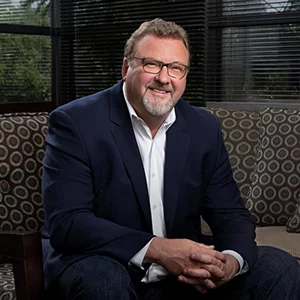
10 Apr AI Aiding in Fight Against Hospital Infections at UC Health!
Amplifire, UCHealth tap into cognitive science to improve health care on many fronts. We curated this excellent article by Todd Neff from UCHealth Today.
The information may be out there; the trick is making it stick.
Go here for more intel from UCHealth.

Amplifire CEO Bob Burgin. Photo courtesy of Amplifire.
Minimizing central line-associated bloodstream infections (CLABSIs) has been a focus of hospitals since the first central line was placed. These hospital-acquired blood infections bring a 10% to 30% mortality rate, and with it incalculable sorrow. CLABSIs also cost U.S. hospitals about $46,000 per patient to treat, adding as much as $2.3 billion to the U.S. health care system’s annual tab.
Decades of work to minimize these infections cut their prevalence roughly in half. Now, Boulder-based Amplifire has shown it can cut it roughly in half again – in just 26 minutes, says Bob Burgin, the company’s CEO.
That’s the average amount of time it takes a health care provider to go through the training-technology company’s CLABSI module. And while the UCHealth CARE Innovation Center partner’s success with CLABSI and other areas of medicine have yet to become universal, Amplifire is making a big difference on multiple fronts at UCHealth and 25 other U.S. health care systems.
UCHealth started working with Amplifire in 2018. The initial focus was on training physicians, nurses, and staff on the Epic electronic health record that contains every UCHealth patient’s medical information. Soon, though, it was clear that Amplifire’s approach would work for clinical learning as well, says JoAnn DelMonte, UCHealth’s vice president of Professional Development & Practice.
“We have 9,300-plus nurses at UCHealth,” DelMonte said. “To target all those learners and keep them engaged in learning is challenging.”
It’s not that nurses, doctors, and other health care providers aren’t good learners. It’s that they’re extremely busy with high-stakes patient care. Plus, hospital-based health care involves biology, tricky combinations of illnesses and injuries, and distributed decision-making happening 24 hours a day. Burgin calls it “the most complex work environment on Earth.”
Amplifire’s learning system manages to keep about 2 million people a year engaged by melding a cognitive-science-derived, artificial-intelligence-enhanced learning approach with the expertise of UCHealth and other experts. The approach is based on decades of academic research on how we retain information. Put simply, we learn best when information pairs with a dose of emotion.
Into the brain: how learning happens…


Sorry, the comment form is closed at this time.